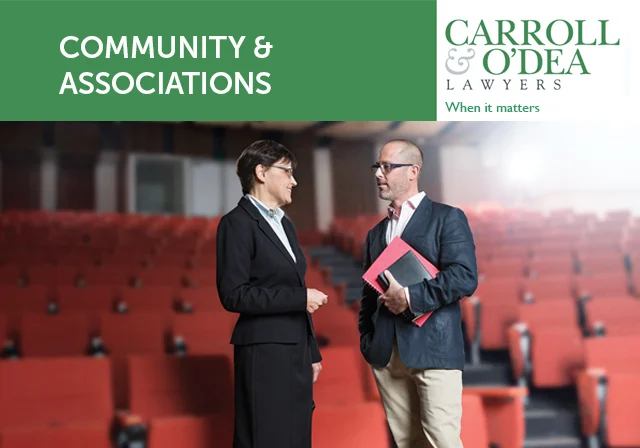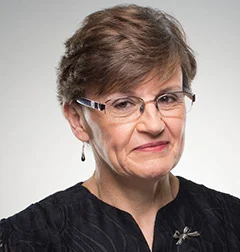
Community & Associations Newsletter – June 2016
Published on May 31, 2016 by Josephine Heesh
In this edition our lawyers provide the following:
- A snap-shot on Australia’s “third sector”.
- An analysis of what recent amendments to the NSW Education Act mean for non-government schools.
- Links to some recent guidance published by Department of Foreign Affairs and Trade (DFAT) and Australian Charities and Not-for-profit Commission (ACNC).
- A comment on the developing judicial opinion on “gay marriage discrimination cases”.
And a good news story about tax returns!
The Carroll & O’Dea Community & Associations Team
In 2012 Australia was, according to the World Giving Index, the most generous country in the world. In 2015 Australia’s global ranking dropped to fifth.
So, are Australians becoming less generous? According to a recent report released by JBWere Philanthropic Services, there is certainly more that Australians can do to support the country’s Not-for-profit sector.
A short lesson on the Education Act
Over the past few months we have seen an increase in requests for advice on the effect of s.83C of the Education Act 1990 (NSW) (Act) from entities that operate schools, or who have agreements with schools. If you were not already aware, the 2014 changes to the Act regulate the use of the income of non-government schools and the eligibility for government funding for schools operated on a “not-for-profit” basis.
Overseas Aid Gift Deductible Scheme
Department of Foreign Affairs and Trade has published new Overseas Aid Gift Deduction Scheme guidelines. They talk about “development work” and “humanitarian assistance” (instead of “disaster relief”), the latter focusing on some “event” which has caused a humanitarian crisis, where there is an expectation of an exit strategy. The aim of the new guidelines was to eliminate unnecessary red tape and cost with the application process. Here is the link.
Public Benevolent Institutions
ACNC issued a draft Interpretation Statement on the meaning and scope of the charity sub-type Public Benevolent Institutions in early May, and are calling for responses by 1 June 2016. Here is the link.
Advocacy
In April, ACNC issued a guidance for Charities which may wish to engage in advocacy during an election campaign. Here is the link.
First there was cake, but now there’s no venue – more developments in Gay Marriage Discrimintation cases
Readers might recall our article in the September Newsletter last year concerning the Asher’s Bakery case before the European Human Rights Commission [insert link to September NFP News]. The Commission found that the bakery could not avoid penalty under Northern Ireland’s equality and fair treatment laws on the basis that the Christian faith of its owners precluded it from fulfilling an order for a cake decorated with slogans in support of gay marriage.
The Good News: UK Tax Tribunal rules against religion of refusing to lodge Tax Returns online!
While in this day and age many things are now done and lodged electronically over the internet, when it comes to the seriously meticulous world of tax returns paper lodgment might carry a certain appeal. For some (or rather for a rare religious few!) this preference for paper might even climb to spiritual dimensions. This was the claim of Mr Harvey in Harvey (T/A Sun Ice Air Conditioning) v Revenue & Customs (VAT- Appeals: Other) [2016] UKFTT 266 . On the evidence, the UK Tax Tribunal disagreed.
Unlike in Australia where lodging a tax return electronically means only that you are “trendy” or a “geek” (whichever way you look at it), the UK Value Added Tax Regulations 1995/2518 prescribes, at Regulation 25, that all tax returns be filed online. So in the UK, if you want to stick with paper you need an exception such as that of Regulation 25A which exempts those members of a religious society or order whose beliefs are incompatible with the use of electronic communications. It was Regulation 25A that Mr Harvery was seeking to raise in defending his right not to lodge electronically due to his “religious beliefs”.
In appealing to the Tribunal, Mr Harvey argued that the Regulation 25A exemption should have applied and that his right to freedom of religion has been impinged. Unfortunately for Mr Harvey, the Tribunal could not apply the exemption nor the Human Rights protections on religious freedom because prior to doing so it would have to have been convinced that Mr Harvey was in fact practising a religion.
As Tribunal Judge S. Allatt pointed out, the onus of proving “religion” was on Mr Harvey. Under examination, Mr Harvey failed to detail his religious beliefs and their application to electronic filing. Mr Harvey did own and use a computer but suffered eye problems after 10 minutes of use. He also claimed to have security concerns about the internet, but he did use the telephone. The inconsistent approach in his relationship with technology, failure to explain his religious tenets and the wording of the Regulation which set an “objective” test for “religion” by linking it to an “order” or “society” all weighed the Tribunal’s finding against his claims for the exemption.
So whilst under Regulation 25A, religion is provided a sanctuary from electronic lodgment, like all else before a Tribunal of law, even these matters of faith need to be adequately proven.
